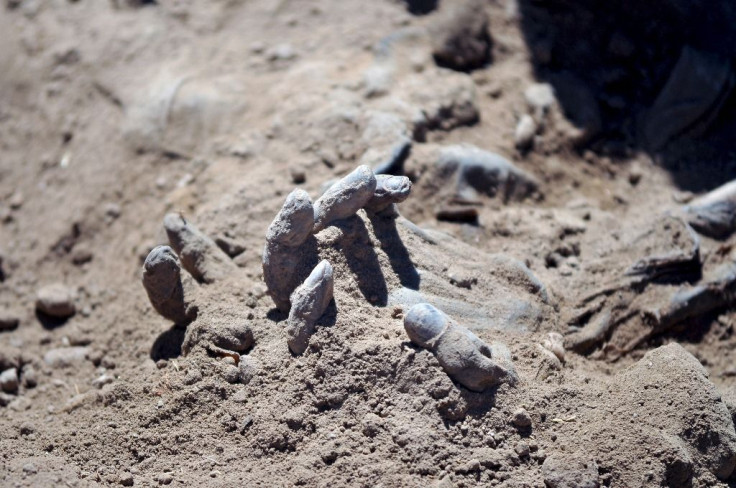Islamic State Group Executes Civilians In Syria: Report

Islamic State group militants executed dozens of civilians Wednesday, according to local sources, with the executions taking place in northern Syria. The group, which is also known as ISIS or ISIL, executed more than 65 civilians -- at least 56 of them Kurds who were slain in Manbij, north of Aleppo.
ARA News reported that the Kurds had been held in a detention center in Manbij. An anonymous source said the Kurds had descended from Kobane, Jarabulus and Manbij, and that they were suspected of cooperating with anti-ISIS forces, such as al Qaeda’s Syrian branch of the al-Nusra Front and the Free Syrian Army. Nine other civilians were shot dead in Deir ez-Zor, after being accused of apostasy.
On Wednesday, ISIS fighters took control of the ancient Syrian city of Palmyra. Since then, they have detained and killed a number of people in the historical city. According to Bebars al-Talawy, an activist in Homs, Syria, the extremist group has killed about 280 pro-government forces and soldiers since it took control of the city. Human rights advocates in Syria also claim that ISIS has killed hundreds of civilians.
The Washington Post reported that, according to the Syrian Observatory for Human Rights, 17 executions occurred. But the Post said there were many more unconfirmed executions.
Syria has been going through a civil war for the past four years. Extremist groups like ISIS took advantage of the political instability and started taking on forces serving President Bashar Assad. ISIS forces now control more than 50 percent of the country at the moment, and have a strong presence in 10 of 14 provinces.
ISIS’ success in Syria motivated the group to spread its operation in neighboring nations like Iraq. The militant forces took control of Iraqi cities like Mosul and Ramadi. The failure in Ramadi is believed to be a major setback for U.S.-led coalition forces.
According to Syrian antiquities chief Maamoun Abdulkarim, ISIS targets people at first to take control. “Second, they attack heritage by destroying for propaganda and ideological reasons,” CNN quoted Abdulkarim as saying. “And (third), they work with the mafia to sell the artifacts."
© Copyright IBTimes 2024. All rights reserved.





















